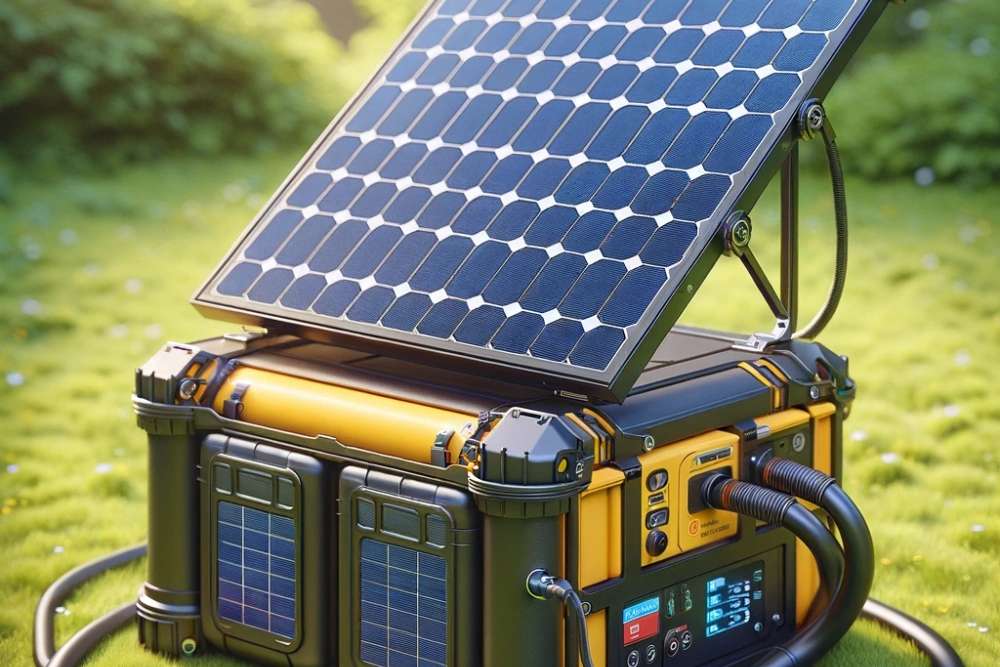Power Generators: Essential Guide to Commercial and Backup Power Solutions
Power generators serve as critical infrastructure for businesses, industrial facilities, and off-grid applications, providing reliable electricity when traditional power sources fail or aren't available. From commercial diesel generators that keep businesses running during outages to renewable energy systems with battery backup, modern power generation options offer solutions for virtually any power requirement. Understanding the differences between various systems helps decision-makers select appropriate solutions for their specific needs, whether for emergency backup or primary power generation.

Commercial Diesel Generators for Business Continuity
Commercial diesel generators remain the backbone of business continuity plans across industries. These robust systems deliver reliable power during outages, preventing costly downtime and potential safety issues. Modern commercial diesel generators incorporate advanced features like automatic transfer switches that detect utility power loss and initiate generator operation within seconds. Additionally, these systems offer excellent fuel efficiency compared to earlier models, with some commercial units capable of running for 24-48 hours on a single tank of fuel during emergency situations.
Many businesses choose diesel generators for their durability, longevity, and ability to handle heavy electrical loads. Commercial models typically range from 20kW to over 3000kW, accommodating everything from small retail establishments to large manufacturing facilities or data centers. The latest commercial diesel generators also feature reduced emissions profiles, quieter operation, and enhanced monitoring capabilities that allow for remote operation and real-time performance analysis.
Industrial Backup Power Systems and Applications
Industrial backup power systems require specialized configurations designed to handle enormous electrical loads while ensuring minimal transition time during power interruptions. In manufacturing environments, even momentary power disruptions can result in defective products, damaged equipment, and significant financial losses. Industrial backup power typically involves sophisticated paralleling systems where multiple generators work together to meet massive power demands while providing redundancy.
Critical facilities like hospitals, data centers, and water treatment plants employ industrial backup power solutions with redundant systems, including backup fuel delivery contracts and comprehensive maintenance programs. These installations often incorporate load management systems that prioritize power distribution to essential equipment first. Modern industrial backup systems also feature enhanced protection against power quality issues such as voltage spikes, harmonics, and frequency fluctuations that can damage sensitive electronic equipment.
Off Grid Diesel Generator Solutions for Remote Locations
Off grid diesel generators provide primary power generation for remote locations without access to utility electricity. These systems differ from backup generators in several key ways, including duty cycle ratings for continuous operation and specialized fuel storage solutions. Remote mining operations, telecommunications facilities, and rural communities often rely on off grid diesel generators as their primary power source.
These generators typically incorporate larger fuel tanks or fuel delivery systems designed for extended operation between refueling. Many modern off grid diesel generators also feature hybrid capabilities, working alongside renewable energy systems to reduce fuel consumption during daylight hours. Advanced off grid systems may include sophisticated control systems that optimize generator performance based on load requirements, maximizing fuel efficiency and extending maintenance intervals while ensuring reliable power delivery in challenging environments.
Grid Tied Solar Systems with Battery Backup
Grid tied solar systems with battery backup represent a hybrid approach to power generation, combining the economic benefits of grid connection with the reliability of onsite power storage. These systems operate connected to utility power under normal conditions, but seamlessly transition to battery power during outages. Unlike traditional grid-tied solar systems that shut down during power failures, battery backup systems continue providing electricity to designated circuits.
The technology incorporates intelligent energy management systems that prioritize power distribution during outages and optimize battery charging cycles during normal operation. Modern lithium-ion battery storage systems offer significantly longer lifespans and better performance than older lead-acid technologies, making these systems increasingly practical for commercial applications. With the addition of commercial-scale solar arrays, these systems can significantly reduce operational expenses through net metering while providing essential backup power during grid failures.
Commercial Generators for Sale: Options and Considerations
The commercial generator market offers diverse options to meet specific business requirements and budget constraints. When evaluating commercial generators for sale, decision-makers should consider several key factors including power output requirements, fuel type preferences, installation constraints, and long-term maintenance costs. Most commercial facilities require professional load analysis to determine appropriate generator sizing before purchase.
Standby commercial generators typically cost more upfront but offer automatic operation and faster response times during outages. Portable commercial generators provide flexibility at lower initial cost but require manual setup during emergencies. Natural gas generators eliminate the need for onsite fuel storage but depend on gas infrastructure remaining operational during disasters. Diesel generators offer independent operation but require fuel storage and regular maintenance to ensure reliability.
| Generator Type | Power Range | Typical Applications | Approximate Cost Range |
|---|---|---|---|
| Commercial Diesel | 20-3000+ kW | Hospitals, Data Centers, Large Retail | $10,000-$500,000+ |
| Natural Gas | 25-500 kW | Office Buildings, Small Manufacturing | $15,000-$200,000 |
| Bi-Fuel Systems | 100-2000 kW | Critical Infrastructure, Healthcare | $30,000-$400,000 |
| Portable Diesel | 5-100 kW | Construction, Small Business | $5,000-$30,000 |
| Industrial Prime Power | 500-3000+ kW | Mining, Remote Operations | $100,000-$1,000,000+ |
Prices, rates, or cost estimates mentioned in this article are based on the latest available information but may change over time. Independent research is advised before making financial decisions.
Selecting the Right Power Generation Solution
Choosing the appropriate power generation system involves analyzing specific needs including required capacity, runtime expectations, fuel availability, and budget constraints. Commercial facilities typically begin with a comprehensive energy audit to determine peak loads and critical systems requiring backup power. Regulatory compliance also plays a significant role in generator selection, with emissions requirements varying by location and application type.
Organizations should consider total cost of ownership rather than focusing solely on initial purchase price. Maintenance requirements, fuel efficiency, expected lifespan, and parts availability all contribute significantly to long-term costs. Working with qualified power system engineers ensures proper sizing and configuration for specific applications, helping avoid both undersized systems that fail to meet needs and oversized systems that waste resources and operate inefficiently.




